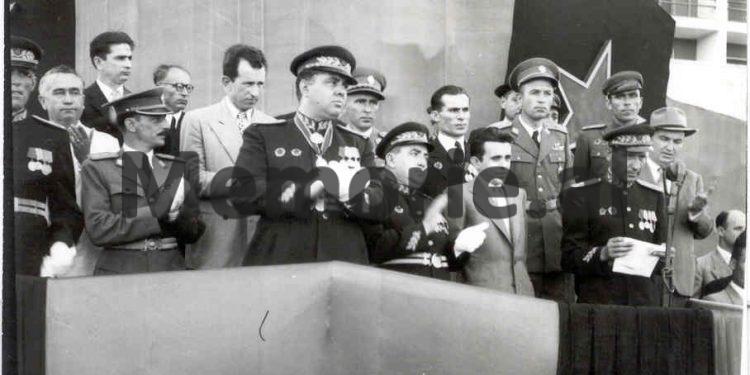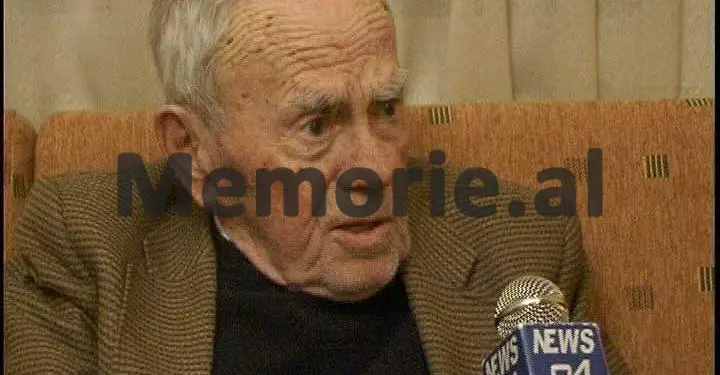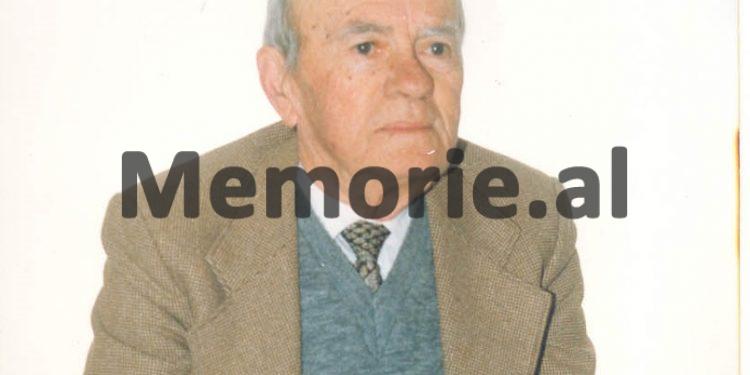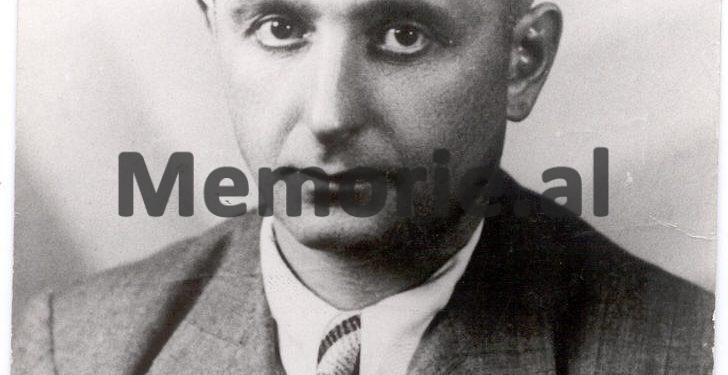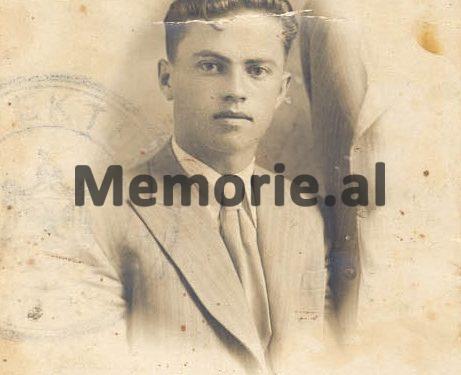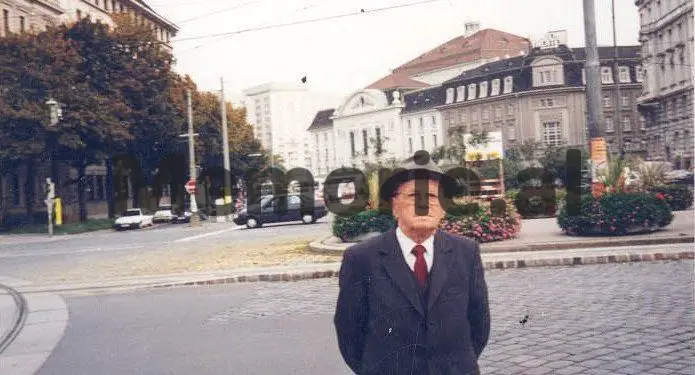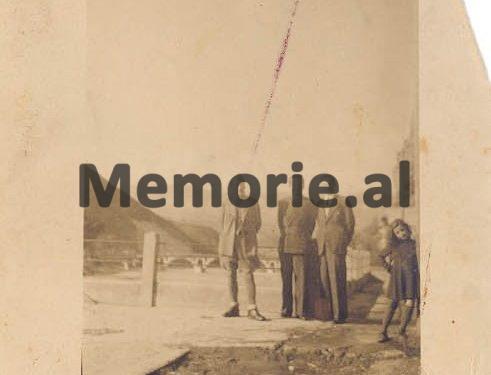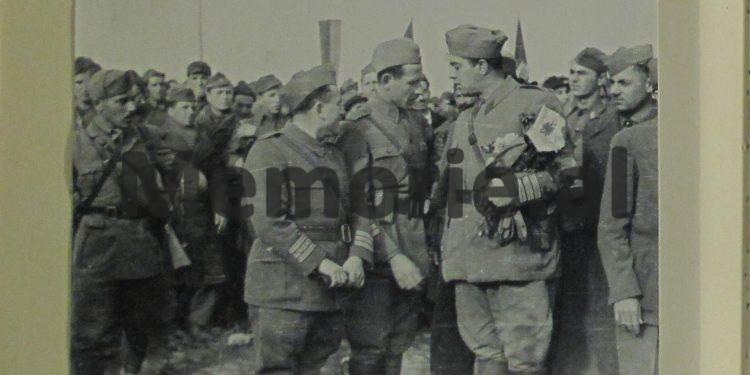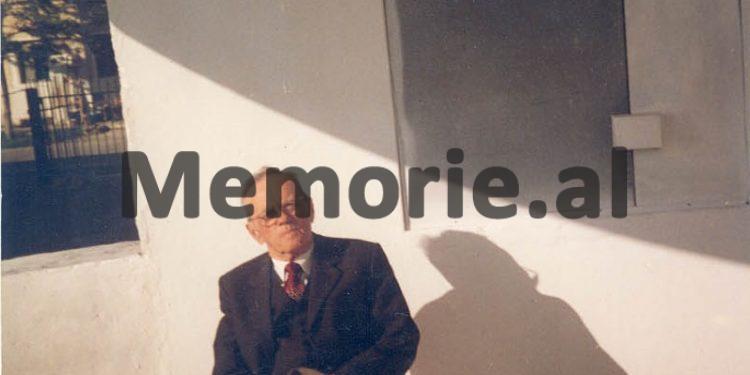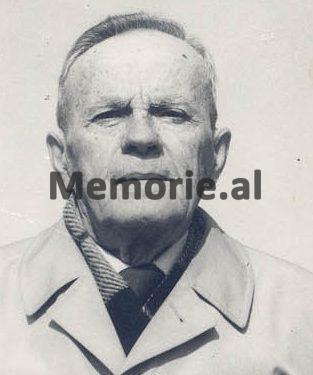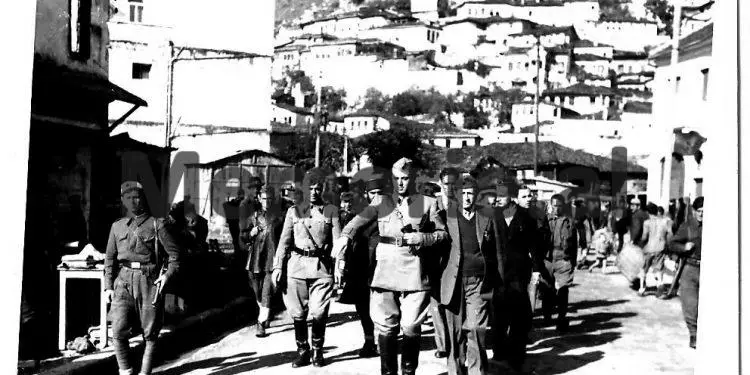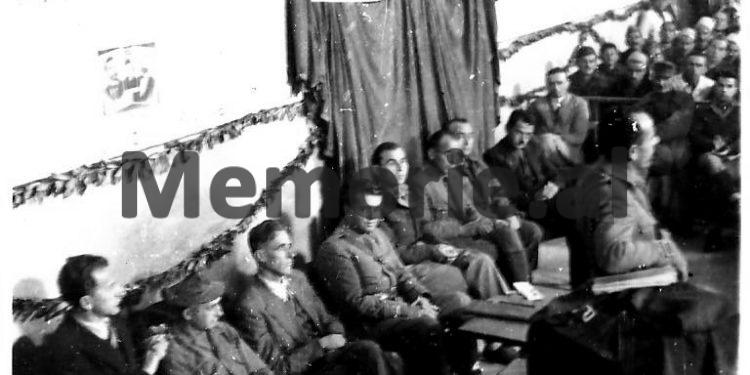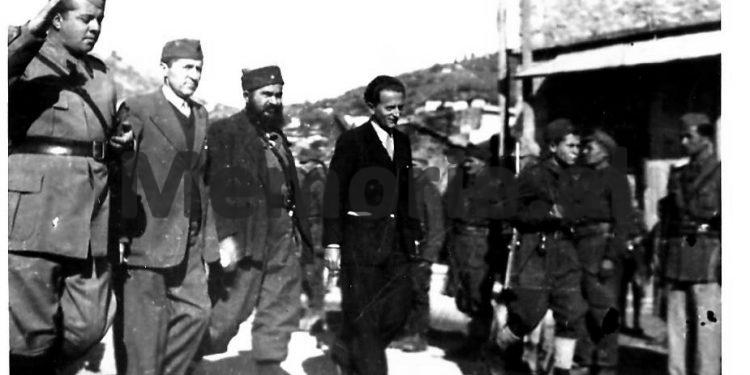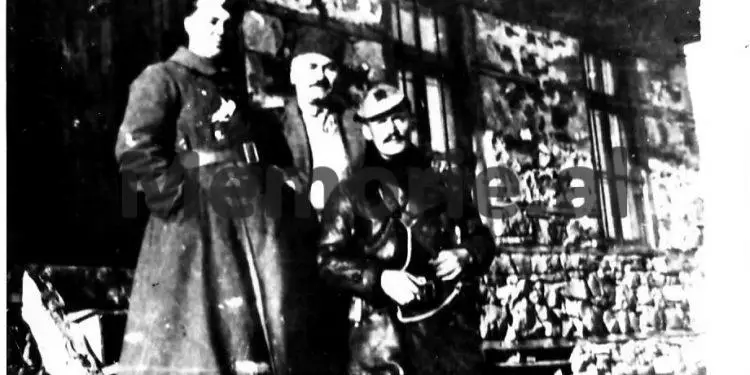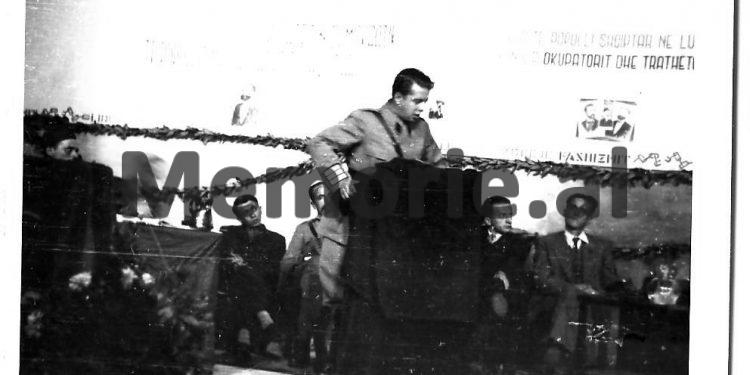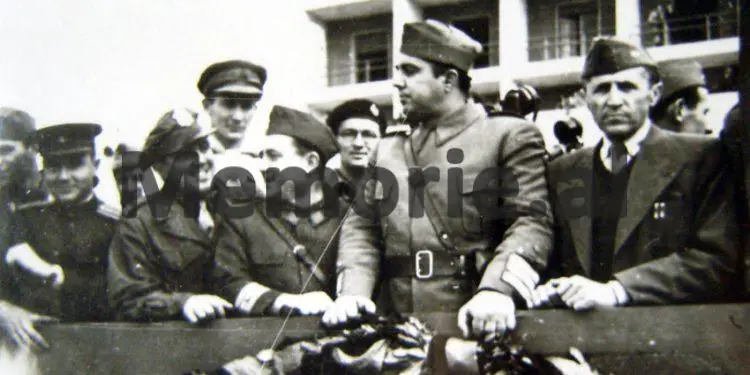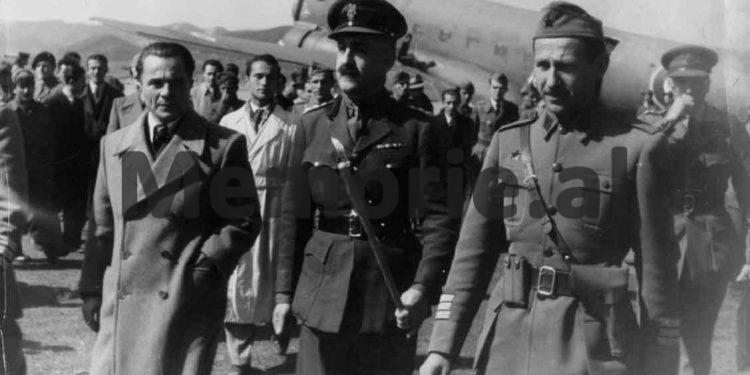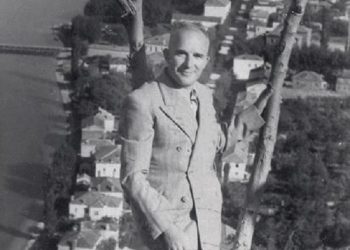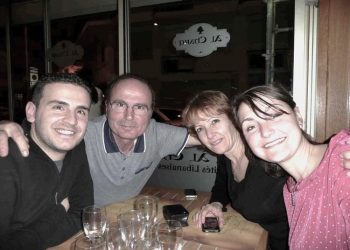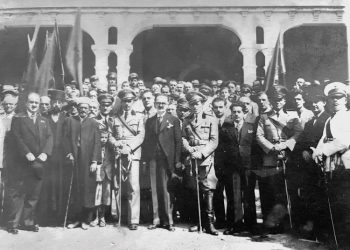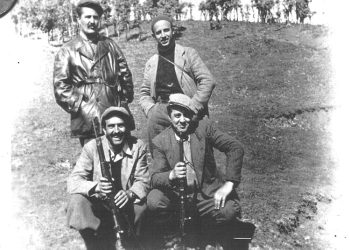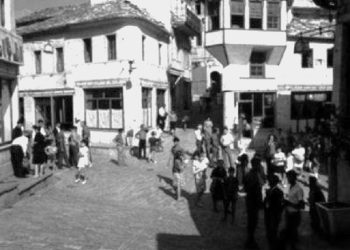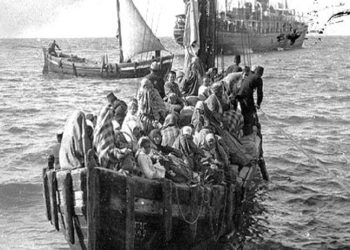Dashnor Kaloçi
Memorie.al publishes the unknown history of the Berat Plenum held from 23 to 17 November 1944, where after much criticism of Enver Hoxha by most of the Politburo such as Koci Xoxe, Sejfulla Malëshova, Pandi Kristo, etc., who accused him of “excessive sectarianism, of deliberately leaving the National Liberation Front of a large part of the population that included various non-communist opposition groups, as well as individuals with great influence in the ranks. of what was called the bourgeoisie, the clergy, etc. ”, with a majority of votes, Enver was excluded from the functions he held at the head of the Party. The rare testimony of Nexhmi Ballka, one of the first communists of the Saranda district during the war and then with high duties and functions to the Deputy Minister of Interior, regarding the Berat Plenum, an event which he has after being testified, Sejfulla Malëshova, one of his closest friends, shortly before the Balkans were sentenced to long years in prison and exile, precisely because he was a close friend and friend of Malëshova.
“After many criticisms of Enver Hoxha in that Plenum by most members of the Politburo, such as Koci Xoxe, Sejfulla Malëshova, Pandi Kristo, etc., his condition was extremely shaky and discussions began that he to be finally expelled from the top leadership of the Party, where he held the main post, that of Secretary-General. Of the criticisms leveled at him, the most evident were those who accused him of excessive sectarianism, of deliberately leaving the National Liberation Front of a large part of the population that included various non-communist opposition groups, as well as individuals. with great influence in the ranks of what was called the bourgeoisie, the clergy, etc. Of all these criticisms, almost all of the members of the Plenum were of the opinion that: Enver Hoxha should be removed from the party leadership and after it was agreed that that thing is voted, by a majority of votes he was expelled from the leading position he had at the party. It was in this situation when everything about Enver was almost over that he got up to discuss Sejfulla Malëshova, one of the most reputable people in the ranks of the top leadership of the Communist Party, who possessed a wide erudition and culture, which he said: I completely agree with all the criticisms made against Enver and I want to say that in addition to what was said about him here in this meeting, he has a lot of other mistakes which did not come out here at all. However, I propose to the Plenum that: Comrade Enver not be dismissed from his role at the head of the party for these reasons Kështu and after her, one of the cadres with senior leadership duties and functions to the Deputy Minister of Interior, who told about one of the most dramatic events of the leader of the Albanian communists, Enver Hoxha, that of the Berat Plenum, events which the Balkans see his close friend, Sejfulla Malëshova, the man who took Enver Hoxha under his protection and finally saved him from the dismissal of that Plenum, has personally testified. Under what circumstances did the Berat Plenum take place, who participated there, what was said about Enver Hoxha, what were the criticisms made against him and how could he escape without being expelled from the party leadership?
Tito’s suggestions for Enver
According to Nexhmi Ballka, when no more than four or five months had passed since the Përmet Congress, where Enver Hoxha had consolidated not only his positions at the head of the Communist Party and the General Staff of the partisan Army that also led the National Liberation Front but also with the support of Anglo-American allies who had attached their missions to his headquarters, he decided to hold a meeting in the city of Berat. Regarding this, in his memoirs, among other things, Enver Hoxha writes: “After the Congress of the Five, the time had come and another step had to be taken to build a more stable structure which would be finalized with the creation of a government of new “. For this, Enver was pushed by the fact that almost most of the country had been liberated by the Germans, and those areas were already controlled by partisan forces that were under his absolute control. At that time, one of the problems that worried Enver Hoxha the most was the possibility of a landing of Anglo-American weapons on the Albanian coast. He strongly believed this after the landing of the Anglo-Americans in Greece, and the thing that worried him most was that after their landing, the Greek government, which had been in exile, had returned to Greece. In these situations, Enver Hoxha decided, through the Yugoslav emissaries attached to the headquarters and the Albanian Communist Party he led, to ask for help from Josif Broz Tito, who, after Stalin, enjoyed the greatest sympathy among all the leaders. of the communist parties of Eastern Europe under German occupation. As Tito was also concerned about a possible landing of allied Anglo-American forces in Albania, which would have brought confusion to this country where he had clear intentions, he advised Enver Hoxha that he should hurry. for the creation of an interim government, which would put the Anglo-Americans in front of an accomplished fact. Tito’s suggestions warmed Enver Hoxha immensely, who hastened to hold a meeting of the Presidency of the Anti-Fascist National Liberation Council, and for this, he chose the city of Berat, one of the most famous in Albania, which was in a good strategic position. and also the oldest city in the history of Albania. This solution consisted of the departure of the Germans a few weeks ago from that city, which had returned to normalcy, and the war damage there was hardly felt at all. In order to guarantee the continuity of what he achieved in Përmet and for that meeting to be called a continuation of it, Berat was called as a second session of the Përmet Congress.
Enver at the head of the Government
Nexhmi Ballka testifies that in that situation, Enver Hoxha encouraged and elaborated the opinion of many of his associates and supporters in the party and the General Staff, that the Presidency of the General National Liberation Council that had emerged from the Përmet Congress, take the attributes of a Provisional Government, which would be called the Democratic Government of Albania. In these circumstances, on September 17, 1944, Enver Hoxha convened the Presidency of the Anti-Fascist National Liberation Council and decided to hold a meeting, which took place from 20 to 23 October. At that meeting, it was decided that the Anti-Fascist National Liberation Committee be called the Democratic Government of Albania and its chairman was appointed Colonel-General Enver Hoxha. In addition to Hoxha, two of the most prominent people behind him were Sejfulla Malëshova, who was appointed Minister of Press, Propaganda and Culture, and Koci Xoxe (the only worker in the ranks of the party’s top leadership), who held the post of deputy. / chairman of the National Liberation Anti-Fascist Council, who was re-elected as Enver Hoxha’s deputy in all the posts and functions he held. Among the main tasks set by the government led by Enver Hoxha was to “strengthen its power exercised by the national liberation councils, to secure and protect the rights of its citizens, to review and break all agreements. the political-military and economic ties that Zog had established, to establish ties and to cooperate closely with the Soviet Union and with all the members of the great anti-fascist coalition ”. That government also undertook, after the liberation of the country, to prepare democratic elections for the Constituent Assembly, which would finally decide the form of the regime that Albania would have.
How the Berat Plenum took place
After the formation of the Provisional Government, which was called Democratic, Enver Hoxha stayed in the city of Berat, where from 23 to 27 November 1944, the Party Plenum was held. This plenum was held more to recognize the role of the Communist Party, which until then had been little known, and was hidden under the Democratic Throne. From the historiography of the communist regime, that meeting has always been called “The Black Plenum of Berat and one of the darkest spots of the Communist Party, which was staged and instigated by the Yugoslavs and their people in the top leadership of the Party.” But what happened in that Plenum and why is it called the Black Plenum of Berat? Nexhmi Balka recalls that the plenum was held to analyze the work of the party up to that time and to assign the tasks that came to it on the eve of the end of the war and the liberation of the country. Immediately after reading the report, which was delivered by Enver Hoxha himself, many criticisms were made against him by most members of the Politburo and the Central Provisional Committee. In this regard, the testimony of Sejfulla Malëshova, one of the highest leaders of the Albanian Communist Party at the time, who possessed a wide erudition and culture, and was widely respected by all communists, as the man who was prepared, sheds light on this. in Moscow. These testimonies of Malëshova about the Berat Plenum were made known by one of his closest friends and comrades, Nexhmi Ballka, a former cadre with high duties before and after the war, who was hit in 1947 (as a friend of Sejfulla Malëshova), being arrested and sentenced to long prison terms. Ballka says that although the conspiracy of the communists was at a high level at that time, Sejfulla Malëshova, having a close friend, told him without going into too much detail, what happened in that meeting that has been called for 45 years. as “one of the darkest stains of the Party.”
Enver’s exclusion in the Berat Plenum
In this regard, according to Malëshova’s testimony, it is known that in the Berat Plenum, after reading the report, almost everyone stood up and spoke against Enver Hoxha, criticizing him harshly, but most of all against him. Koci Xoxe, Sejfulla Malëshova, and Pandi Kristo spoke. After those criticisms made against him, which consisted of excessive sectarianism and deliberate departure from the ranks of the Front of a large part of the population which included various non-communist opposition groups and individuals who had an influence of great in the ranks of what was called the bourgeoisie, the clergy, etc., Enver’s condition was greatly aggravated, and his exclusion from the role he held at the head of the party was decided. The meeting decided to put to the vote the proposal for his dismissal, and after a majority vote, he was expelled. After that decision, Enver’s eyes filled with tears and he asked the Plenum to leave him at the party so that he would have the opportunity and time to reflect. After Enver’s words, Sejfulla Malëshova stood up and said: “I completely agree with what was said here about Enver, but given that our party is young and well-consolidated, where we have not been active and conferences of regular, I think we should discuss the issue of Enver’s expulsion from the party when we go to Tirana. This is not going to happen now, for the very conditions in which we are, where the liberation of Albania is a matter of days and Enver is very popular at the head of the party. Let’s leave this problem and discuss it when we go to Tirana and there you will see that in addition to these problems that came out here, for Enver we have a lot of other things that you have never heard before “. After Sejfulla’s words, none of the other participants in that meeting objected and the plenum closed the proceedings, leaving Enver Hoxha in his position as Secretary-General at the head of the Albanian Communist Party.
How did the Berat problem end?
Two days after the Berat Plenum, the end of the war and the Provisional Government, led by Enver Hoxha, conceded and left for Tirana to celebrate the liberation of the country as triumphant. Subsequent events unfolded differently and the figure of Enver Hoxha grew immensely in the eyes of his collaborators and the crowds of people who welcomed his entry into Tirana with flowers. After that, there was no more room to discuss the words of Sejfulla Malëshova who said in Berat about Enver Hoxha. For members of the Central Committee of the Albanian Communist Party and for Sejfulla Malëshova herself, that problem was called a thing of the past and could no longer be discussed. In a few days, things had changed a lot and those who spoke in Berat were already looking to take their places as close as possible to the Commander in the tribune party hotel “Dajti” where grand parades were held with armed partisans and the people shouting: “Long live our Commander, General -colonel Enver Hoxha ”./Memorie.al




